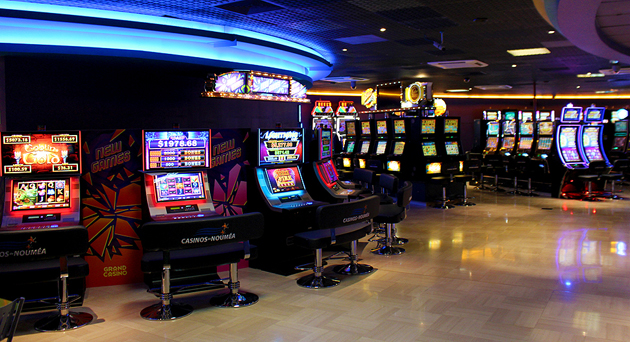The Story of Gambling: Dating Back to Ancient Civilizations to Present-Day Casino Gaming
by adstaste.nl
Gambling has been an integral part of human entertainment for millions of years, evolving through societies and periods to become the dynamic casino games we know today. From the ancient Chinese and Romans, who engaged in multiple forms of gambling and chance, to the modern gaming floors of today’s casinos, the attraction of risk and reward has enchanted individuals across the globe. The transition from basic dice games and rudimentary betting setups to the extravagant settings of contemporary casinos reflects major strides in both social norms and technological advancements. rr88
As cultures evolved, so too did the complexity of gambling activities, with casino games emerging as a distinct category of leisure and excitement. These games have evolved from informal gatherings centered around wooden tables to expansive, opulent establishments designed to lure players. Today, we explore this fascinating journey, examining how historical practices laid the foundation for the diverse and thrilling casino games that bring pleasure to millions worldwide.
spintax
Historical Gambling Traditions
Betting has significant roots in human past, with proof of activities of chance originating from ancient societies. Archaeologists have found that as far back as 3000 BC, the ancient Chinese were using primitive forms of gambling with dice made from wood. Similarly, ancient Mesopotamians engaged in gambling activities, often relying on the tossing of lots or dice to determine winners. These early forms of betting served not only as entertainment but also played crucial roles in social and cultural customs.
The people of Egypt also were involved in betting activities, with games that included betting on the results of various events, including athletic events and religious festivals. Artifacts such as dice and depictions of gamblers from ancient tombs demonstrate that gambling was a popular pastime. It provided both relaxation and a means of engaging in social connections, often linked to celebratory occasions or significant gatherings. This behavior revealed the universal appeal of chance and competition throughout the ages.
In ancient Rome, betting became a widespread practice among the populace, as reflected by references in literature and the establishment of guidelines around certain games. Romans enjoyed a variety of gambling activities, from betting on horse races to playing games akin to modern-day board games. The legal structure surrounding these activities began to take shape, establishing the foundations for gambling regulations that would evolve in the centuries to come. The prevalence of betting during this period set the stage for the development of casino games in the future.
The Evolution of Gambling Games
Gambling games have undergone substantial transformations from their roots to the modern-day entertainment selections. In ancient civilizations, gaming was commonly linked to ceremonial practices, with games of dice found in Mesopotamia and wagering on the outcomes of events in ancient Rome. These initial forms of gambling laid the basis for the organized games we see today. The change from informal gambling to systematic games happened as societies began forming rules and venues for wagering, demonstrating cultural values and practices.

The medieval period saw the rise of card games, which gained recognition among the nobility of Europe nobility. Games like first and baccarat became staples in social gatherings. The creation of printing technology additionally facilitated the spread of playing cards, making them more accessible to the general public. As gambling houses began to increase, these card games evolved into adaptations that appealed to wider audiences, eventually leading to the creation of casinos as exclusive venues for gaming.
The 1900s marked a significant point in the evolution of casino games, with the rise of commercial casinos in Las Vegas and other betting centers. This era introduced games like video slots and modern variations of table games, complete with advanced graphics and detailed betting structures. The introduction of online casinos in the tail end of the 1990s additionally transformed the gaming industry, allowing players to access a vast array of casino games from the comfort of their homes. Today, casino games continue to evolve, blending classic elements with cutting-edge technology to create captivating experiences for players worldwide.
Contemporary Gaming Laws
In the past few years, the landscape of gambling regulations has evolved substantially, especially as tech advances and online gaming have become increasingly prevalent. Regulatory bodies around the planet have implemented multiple laws and standards to make certain that gambling activities are carried out fairly, with responsibility, and openly. These laws often include elements such as licensing, advertising, gambler safeguards, and sensible gaming measures. Authorities aim to reduce issues such as problem gambling and cheating while fostering a fair gaming environment.
The emergence of online casinos has required a different approach to regulation. Many jurisdictions have created dedicated internet-based gambling frameworks that serve internet-based gaming, allowing operators to offer their offerings legally. These structures often require operators to secure permits, adhere to strict safety protocols, and offer customer support options to assist players. By closely monitoring online activities, regulators can more effectively protect consumers from risks and make sure that gaming is carried out in a protected manner.
Moreover, modern gambling regulations are increasingly concentrating on responsible gaming initiatives. Many gaming establishments and online platforms now implement features such as self-exclusion, financial limits, and breaks to help players control their gambling habits. Awareness campaigns aimed at raising awareness about the risks of gambling are also frequent. As the sector continues to grow, the emphasis on responsible gaming continues to be a fundamental principle of governing efforts, showing a commitment to promoting a safe and enjoyable gambling experience for all players.
Gambling has been an integral part of human entertainment for millions of years, evolving through societies and periods to become the dynamic casino games we know today. From the ancient Chinese and Romans, who engaged in multiple forms of gambling and chance, to the modern gaming floors of today’s casinos, the attraction of risk and…
beste casino zonder cruks nederland
online casino zonder verificatie
betrouwbare online casino zonder cruks
nieuwe online goksites Nederland